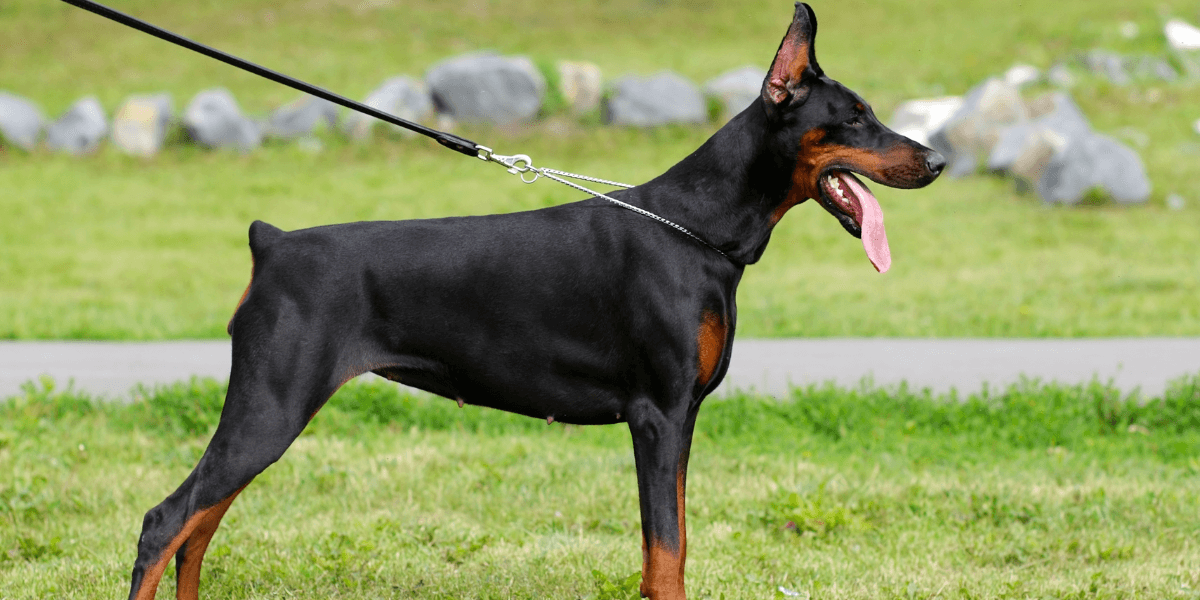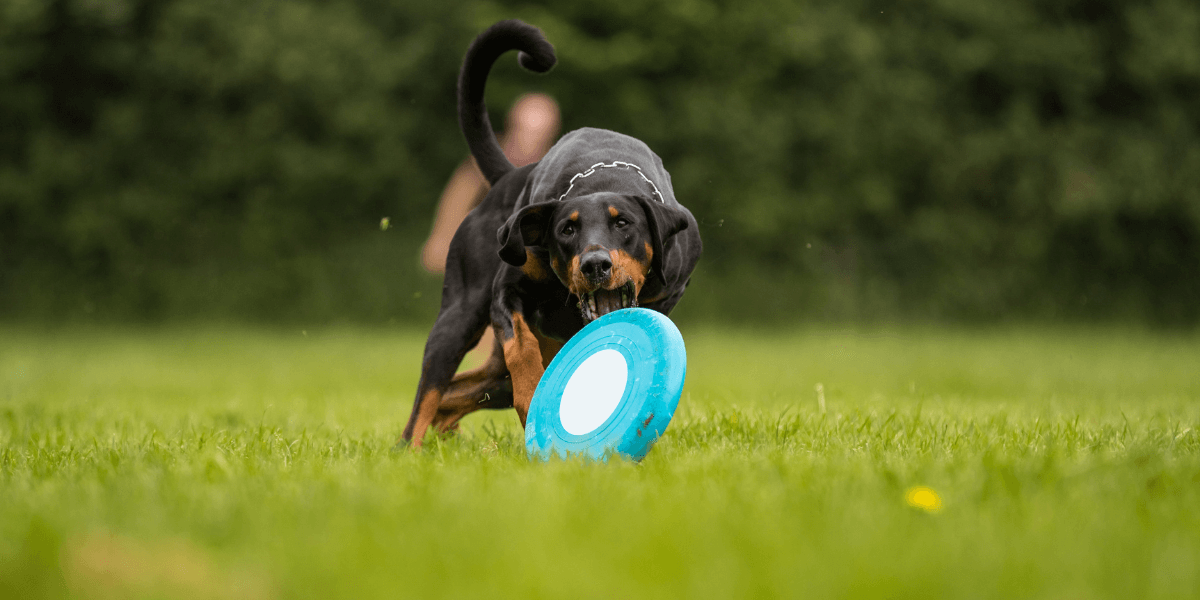Introduction
Dobermans and family life can thrive with proper training, socialization, and care.
- They have a protective nature that appeals to many families
- But are Dobermans good with kids and other pets
- In this article, we'll explore their suitability as family pets
- We'll cover temperament, socialization, and more
- Read on to learn if a Doberman fits your family's lifestyle
1. Temperament of Dobermans

Dobermans have an energetic and loyal nature that makes them great family protectors.
- Loyal: Dobermans are known for their deep loyalty to their families
- Energetic: These dogs require regular physical and mental stimulation
- Alert: Their alertness makes them excellent watchdogs
- Affectionate: Despite their tough exterior, Dobermans love affection from their owners
- Confident: A well-trained Doberman carries a confident demeanor
- Protective: They are instinctively protective of their family members
- Obedient: With proper training, Dobermans are highly obedient dogs
- Independent: While loyal, they also appreciate moments of independence
2. Dobermans Good with Kids

Dobermans can be great with kids when properly trained and socialized.
- Gentle: They can be surprisingly gentle around children
- Protective: Dobermans often develop protective bonds with kids
- Playful: These dogs enjoy playing with children in controlled environments
- Trainable: Training helps them adapt to children's behaviors
- Supervision: Adult supervision is necessary, especially with young kids
- Patience: They can develop patience when exposed to children early
- Size: Their size can be a factor, requiring extra care with smaller kids
- Tolerance: Dobermans may tolerate more energetic children when socialized
3. Dobermans and Other Pets

Dobermans can live with other pets if introduced properly and consistently.
- Territorial: Dobermans may exhibit territorial behavior with other animals
- Early Socialization: Early exposure to pets improves their adaptability
- Same-sex Aggression: There may be aggression with same-sex dogs
- Small Pets: Caution is needed when introducing Dobermans to small animals
- Patience: Time and patience are essential for cohabitation with pets
- Training: Obedience training can reduce tensions with other pets
- Pack Behavior: They may become more harmonious in a pack with guidance
- Supervision: Always supervise interactions with smaller or unfamiliar pets
4. Training and Socialization

Dobermans and family life thrive when training and socialization are prioritized.
- Consistency: Consistent training leads to well-behaved Dobermans
- Positive Reinforcement: Using positive methods encourages good behavior
- Early Socialization: Exposing them early helps prevent aggression
- Commands: Teaching basic commands strengthens communication
- Crate Training: Crate training helps create a structure for your Doberman
- Behavioral Training: Proper training minimizes undesirable behaviors
- Obedience Classes: Professional classes can improve overall temperament
- Social Outings: Regular outings help them adjust to different settings
Like Dobermans, German Shepherds need training; see The Ultimate Guide to German Shepherd Dog Training.
5. Exercise and Mental Stimulation

Dobermans need regular exercise and mental stimulation to stay happy.
- Daily Walks: Regular walks are essential to burn off energy
- Playtime: Structured playtime helps fulfill their energetic needs
- Interactive Toys: Mental stimulation can be achieved through toys
- Training: Incorporate training during exercise for mental enrichment
- Agility: Dobermans excel in agility training for both mind and body
- Games: Engage them with games that challenge their instincts
- Routine: A consistent routine helps keep your Doberman balanced
- Social Exercise: Socializing during walks or playdates improves their behavior
Explore the best ways to keep your Doberman fit and mentally sharp.
6. Health Considerations

Maintaining good health is vital for a happy Dobermans and family life.
- Hip Dysplasia: This breed is prone to hip dysplasia, so monitor movement
- Heart Health: Dobermans can face heart conditions like dilated cardiomyopathy
- Weight: Maintaining a healthy weight is crucial for their overall health
- Ear Infections: Regular cleaning helps prevent ear infections
- Vaccinations: Keep your Doberman up to date with vaccinations
- Dental Care: Regular brushing keeps their teeth and gums healthy
- Vet Visits: Schedule regular vet visits for routine checkups
- Diet: A balanced diet rich in protein supports an active lifestyle
7. Dobermans Good as Family Dogs

Dobermans can be excellent family dogs with proper training and care.
- Bonding: They form strong emotional bonds with their families
- Obedient: Well-trained Dobermans follow commands and respect boundaries
- Protective: Their protective instincts can make families feel safe
- Adaptable: They can adapt to different family environments with guidance
- Social: Proper socialization allows them to coexist well with kids and pets
- Loyal: They are loyal companions who love spending time with their family
- Exercise: They need a family that can meet their high exercise needs
- Loving: Despite their strong presence, Dobermans are affectionate dogs
Like Dobermans, German Shepherds are loyal family pets—learn more in Are German Shepherd Dogs Good Family Pets?
FAQs
1. Are Dobermans naturally aggressive?
- Dobermans are not naturally aggressive but need training and socialization
2. Can Dobermans be good with small pets?
- Dobermans can be good with small pets if introduced early and supervised
3. Do Dobermans require a lot of exercise?
- Yes, Dobermans need daily exercise and mental stimulation to stay healthy
4. Are Dobermans suitable for first-time dog owners?
- They may not be ideal for first-time owners due to their training needs
5. How are Dobermans with young children?
- Dobermans can be gentle with young kids when properly trained and supervised
6. Do Dobermans shed a lot?
- Dobermans shed moderately and need regular grooming to manage their coat
7. What is the life expectancy of a Doberman?
- The average life expectancy of a Doberman is around 10-13 years
Conclusion
- Dobermans and family life are a great match with the right training and socialization
- They are protective, loyal, and can be good with kids and other pets
- Their need for exercise and mental stimulation must be considered
- With consistent training, Great Danes, like Dobermans, thrive in structured environments
- Make sure to provide early socialization for smoother family integration
- Interested in getting a Doberman for your family? Start by learning more today



